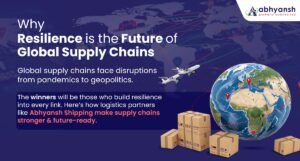The Global Maritime India Summit (GMIS) 2023, a three-day extravaganza that concluded recently, has set new benchmarks for the maritime industry. The event, which stands as one of the largest maritime summits globally, achieved a monumental feat by securing investments totaling ₹10 lakh crores. This milestone represents a significant stride toward realizing Prime Minister Shri Narendra Modi’s visionary ‘Amrit Kaal Vision 2047,’ aimed at channeling ₹80 trillion into the maritime sector’s development by 2047.
At the valedictory session of GMIS 2023, the ‘GMIS 2023 Mumbai Declaration’ was unveiled. This historical moment featured distinguished personalities, including the Union Minister of Ports, Shipping & Waterways and Ayush, Sarbananda Sonowal, Union Minister of Finance, Smt. Nirmal Sitharaman, Union Minister of Commerce & Industry, Shri Piyush Goyal, and many other esteemed guests.
GMIS 2023 witnessed a remarkable gathering, with more than 50,000 physical and virtual attendees and participation from over 215 international and national speakers. These numbers underscored the event’s international stature, creating opportunities for maritime stakeholders at both domestic and global levels.
The success of GMIS 2023 can be attributed to a multifaceted approach, combining financial investments, policy advancements, and a commitment to innovation. This summit exemplified India’s focus on research and development, particularly in the field of maritime technology. Initiatives like the Digital Centre of Excellence for Maritime Efficiency (COEME) and an emphasis on leveraging India’s maritime startup ecosystem showcased the government’s dedication to technological advancement.
Sustainability was a key theme throughout the event, with discussions centered on green ports, shipping, and carbon neutrality. India’s plans to reduce greenhouse gas emissions and employ green fuels, renewable energy, and electrified equipment for yard operations were lauded. By focusing on these environmentally conscious practices, India is poised to lead in addressing climate change within the maritime industry.
GMIS 2023 also recognized the invaluable contributions of seafarers, designating them as ‘Key Workers’ in line with the United Nations’ acknowledgment. India’s remarkable ascent to the 5th position in global seafarer supply was celebrated, reflecting years of effort in cultivating industry-ready talent. The importance of providing seafarers with a supportive and comfortable working environment in the post-pandemic era was emphasized.
The event’s sessions and roundtables touched on crucial aspects of the maritime sector, including regional development initiatives, economic corridors, and the development of ports to connect India with Europe. The prospects in India’s cruise sector were highlighted, with the government’s commitment to its growth evidenced by measures such as creating cruise terminal infrastructure, incentivization, and regulatory frameworks in line with international standards.
GMIS 2023 not only celebrated the achievements of India’s maritime sector but also offered insights into the future of the global maritime industry. With the launch of Maritime Amrit Kaal Vision 2047, a roadmap for the maritime sector’s development for the next 25 years, India aims to unlock investments totaling ₹80 lakh crores by 2047, marking a pivotal step towards self-reliance.
At a roundtable on Global Economic Corridors, CEOs from international and Indian companies came together to discuss the prospects of global economic corridors. A total of 60 representatives from various countries and 21 ministers from 10 countries participated in various sessions. The presence of Prime Minister Shri Narendra Modi at the inaugural session, where he laid the foundation for projects worth ₹18,800 crores and launched Maritime Amrit Kaal Vision 2047, further highlighted the government’s commitment to the maritime sector’s growth.
GMIS 2023 will be remembered as a testament to India’s growing prominence in the maritime industry, setting the stage for a future driven by innovation, sustainability, and economic growth.






